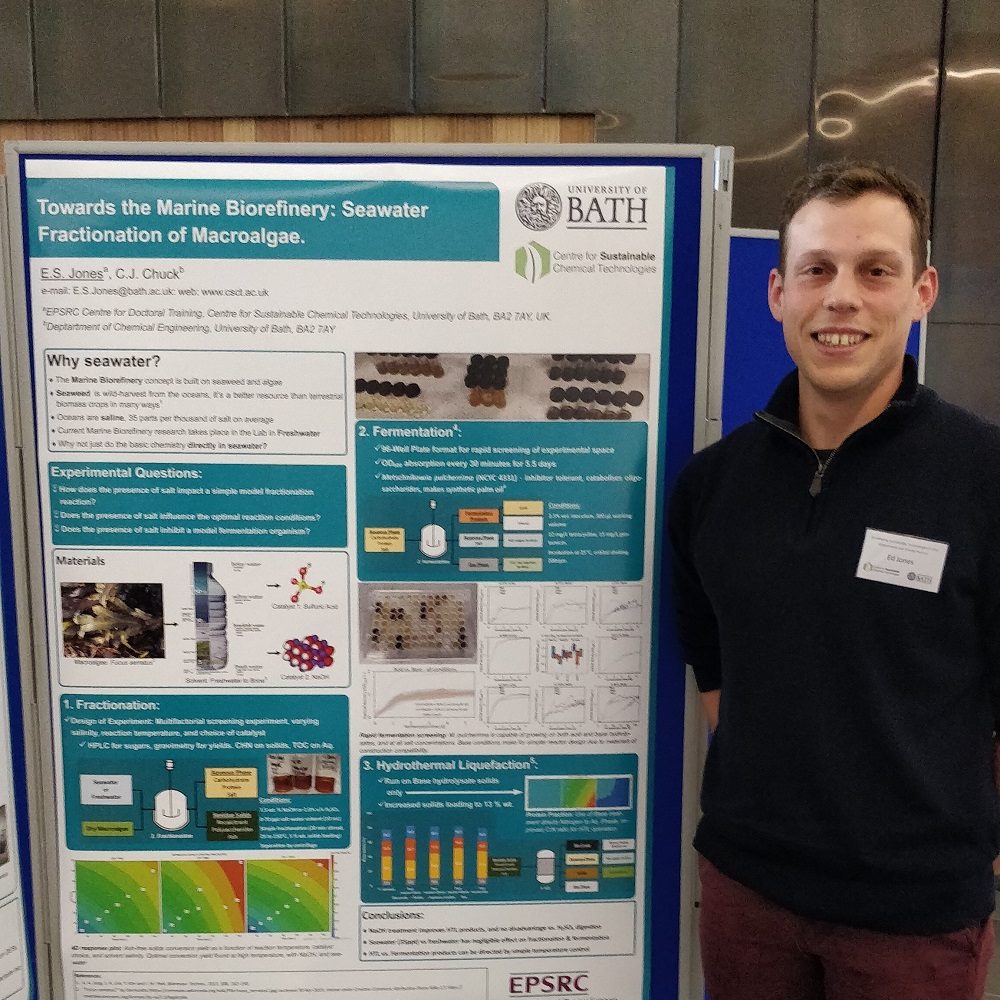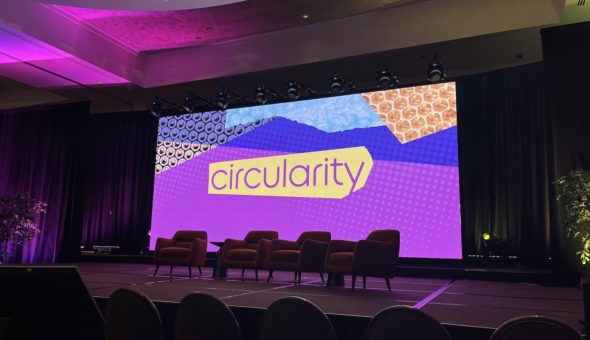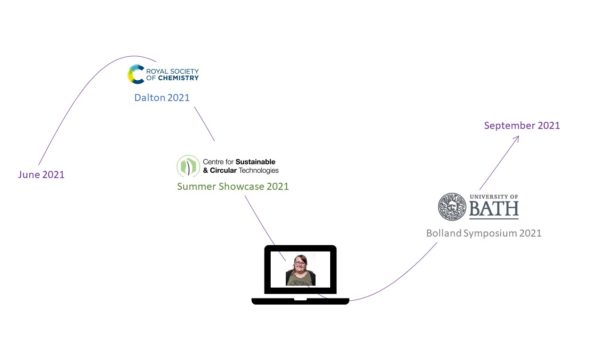Ed Jones is an MRes student in Sustainable Chemical Technologies at the CSCT. Over the first few months of 2019, Ed was involved in organising an international symposium along with other fellow students. Having dipped his toes into the waters of event management, he now reports on the unexpected challenges encountered and on the experience as a whole.
The scientific report on this piece was written by Vicky De Groof, who was also part of the event organising committee.
When I made my decision to return to academia from my blossoming industrial career, it was the fond memories of working with Professor Chris Chuck during my undergraduate degree that convinced me. With a head full of dreams of returning to Bath, I applied to join the CSCT with the intention to carry on working on research projects looking for new ways to make fuels and industrial chemicals.
I was interviewed for the CDT in Feb-2018, accepted an offer shortly afterwards. Fast forward to January 2019, when I’m happily working on my first MRes project in the Chuck group, and Chris puts out a call for volunteers. What for? To help organise an inaugural joint symposium with scientists from the US Dept. of Energy, no less!
Having never organised a symposium or any sort of event ever before, of course I eagerly put myself forward – it was a perfect opportunity for some early career networking, and in a subject area so close to the core drive that brought me back to the research centre. Besides, it would also give me a break from the lab. How hard could it be? (spoiler alert: quite, actually).
Led by Professor Chris Chuck, the organising committee -formed by myself, Helen Liang, Matt Cowley, Bethan Charles and Vicky De Groof- met regularly, starting in January 2019, to start assigning tasks and actions that needed completing. As this list grew and grew, I started to get a real appreciation for hard-work that goes into making an event like this happen. The dozens of un-named helpers and advisers you end up contacting, the little favours, and the last minute panics when the catering is late and we’re running over schedule.
The two days of the symposium ran smoothly – thanks in part to a healthy amount of frantic background work over the four months prior to the event.
So what was it all about?
The symposium covered three wide areas regarding sustainable technologies in the bioeconomy and energy sectors.
The first session focussed on biorefineries and their role in enabling a bio-based economy. In a traditional refinery, crude-oil or petroleum is converted using energy and chemical processes into a range of fuels and chemicals. The resulting chemicals are the building-blocks used by industry to make a wide range of materials and products, from basic commodities to high-tech products essential to the information age. These products are as diverse as plastics, lubricants, paracetamol, washing detergents, components in smartphones, or even lightweight structural polymers that make vehicles both lighter and safer.
In a similar way, a biorefinery produces a wide range of products and fuels, to allow the manufacture of useful products and materials. However, instead of using crude-oil as a feedstock, biorefineries use biomass – material that comes from plants or animals, such as straw, forestry waste, or the ever popular palm-oil crops. This biomass can range from algae, as presented by Professor Chris Chuck (University of Bath), or waste streams, as discussed by Dr Phil Pienkos (NREL). Since biomass is very complex in composition, several technologies have to be used to ensure both minimum waste and a diverse range of valuable products. These technologies can be of a more chemical nature, as shown by Dr Andrew Sutton (LANL), or apply biology such as fermentation with engineered bacteria as Dr Liz Jenkins (Green Biologics) and Prof. David Leak (UoB) showcased. Dr Sheila Samsatli (UoB) closed the session by sharing her work on the development of a computational modelling tool that allows to predict what the best place would be to build biorefineries across the country; taking into account where certain biomass crops, waste and renewable energy technologies are.
Sustainable energy technologies rely heavily on having the right materials available. Therefore, the second theme of the symposium focussed on materials and the computational modelling tools currently being used to develop them. Prof. Tina Duren (UoB) and Prof. Saiful Islam (UoB) both gave great insight into how computational modelling can be useful to select materials suitable for various energy-related applications, such as in batteries or solar cells.
The latest research in solar energy technologies was presented by Dr Salvador Eslava (UoB), Dr Petra Cameron (UoB) and Dr Jenny Baker (SPECIFIC). Their talks provided an interesting overview on the latest research regarding processes that allow to store solar energy as fuels, the recent developments of solar cells, and how buildings can be designed as a power station.
The event went on to address the latest research regarding hydrogen as a clean fuel. Hydrogen is an interesting alternative to fossil fuels because instead of producing energy and CO2 when burned, it produces energy and water. Unfortunately, it is currently impossible to store enough hydrogen in a normal-sized fuel tank. In addition, the majority of current hydrogen production relies on methane (usually derived from natural gas – a common fossil fuel) as a starting product. The production of “green” (not fossil fuel-derived) hydrogen, as well as its safe and efficient storage so it can be used as a fuel, continue to be a challenge for scientists. The latest advances in this field were presented by Prof. Tim Mays (UoB) and Dr Troy Semelsberger (LANL).
Finally, the symposium highlighted the newest advances on biopolymers. Biopolymers are plastics, but instead of being made from fossil-derived chemicals, they are made from biological sources, such as sugars or fermentation products. Prof. Matthew Davidson and Dr. Antoine Buchard (UoB) discussed the importance of developing these bio-plastics, and shared the latest research from the University of Bath. The session was wrapped up by Dr. Vasilis Tsanaktsis (Corbion), who shared the latest progress made by the company on a specific type of biopolymers.
The experience of helping to organise a symposium this early in my path as a post-graduate researcher was invaluable. I gained genuine insight into the huge value of academic and industrial networking events. Bringing industrial, national institutional, and academics together allowed a natural buzz of discussion around new research ideas, with valuable input from each demographic.
During my time in industry, I had the opportunity to attend large corporate meetings and retreats, be a member in delegations from the UK business in meetings in Europe, and have benefitted from innumerable laid-on lunches with the company. However, I had never truly appreciated all the hard work and dedication that goes into making these events -even the small ones- run as smoothly as they always do. Needless to say, I have learnt this now. In the future, I’ll certainly appreciate having made contacts with some of the vital people that can keep the wheels turning no matter the last-minute disaster that occurs.
On balance it was a highly rewarding experience, topped off by not only presenting my first ever research poster, but also winning a poster prize for the event!
The CSCT / US Dept. of Energy Symposium was successfully held in the University of Bath in May 2019.
Respond




